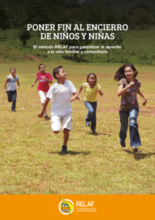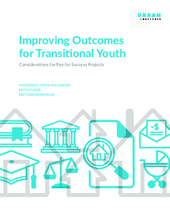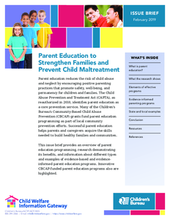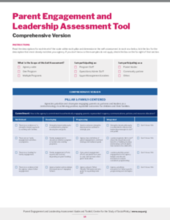This page contains documents and other resources related to children's care in the Americas. Browse resources by region, country, or category.
Displaying 201 - 210 of 566
Family for Every Child has shared three pre-recorded presentations to watch in advance of their Online Event on Kinship Care in Brazil on Wednesday 3 April at 13:00 UK time.
This study has three aims: (1) to provide an overview of a module designed to support relationship building between LGBTQ+ youth in foster care and their caregivers, (2) to describe the theater testing procedure used to assess usability of the developed module with foster caregivers and adults, and (3) to share the results of the theater test.
To explore the viability of positive youth development for youth in care, this observational study investigated whether participation in a summer camp-based reunification program for siblings separated by foster care in the US and Australia called Camp To Belong influenced youth resilience, a critical protective mechanism for maltreated youth.
This study examined the effectiveness of solution-focused brief therapy (SFBT) on child well-being and family functioning outcomes for child welfare involved parents.
This research addresses one of the most pressing and controversial issues facing child welfare policymakers and practitioners today: the dramatic overrepresentation of Indigenous families in North American public child welfare systems. The article presents a successful model of inclusive education: the Center for Regional and Tribal Child Welfare Studies (the Center) at the University of Minnesota, Duluth, School of Social Work.
El objetivo de este documento es identificar y transmitir las características del método que ha empleado RELAF para generar la adecuación de los subsistemas de protección integral de derechos de los niños privados de cuidados familiares o en riesgo de perderlos, haciendo énfasis en procesos de desinstitucionalización.
This brief summarizes insights drawn from Community of Practice conversations and provides recommendations for local governments, service providers, and other partners considering Pay for success (PFS) as a tool for financing interventions serving transitional youth.
This issue brief provides an overview of parent education programming, research demonstrating its benefits, and information about different types and examples of evidence-based and evidence-informed parent education programs.
This resource is designed to help agencies, systems, and collaboratives working with young children and their families to chart a course toward an expanded approach to family engagement.
In this webinar presented by RISE Learning Network, Omattie Madray and Zenainda Rosales presented an extensive study recently carried out which analyzed over 100 documents and conducted over 20 interviews to gain insights on practices of organizations supporting and caring for boys affected by sexual violence in their recovery process.





